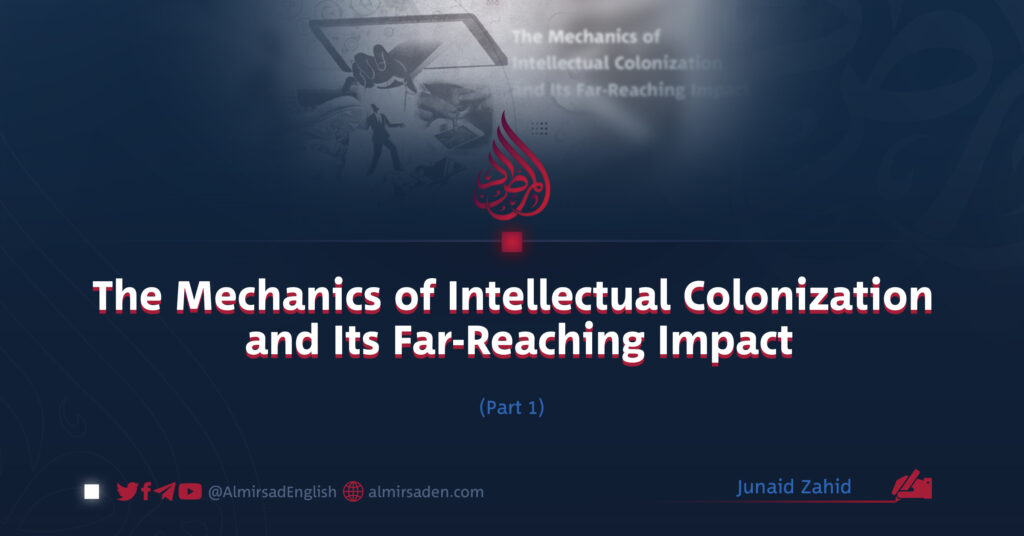Written by: Junaid Zahid
It is essential for Muslims to seek guidance from their religious values and principles in all matters. Therefore, I refer to the Qur’an to obtain an accurate and authentic definition and explanation of what colonization entails.
The Qur’an uses a specific term for colonization, which encompasses its various aspects and components.
The term “Istid‘af” (subjugation) is used to describe the broad concept of military, intellectual, and political colonization, signifying the exploitation of an individual or society.
On the other hand, the Qur’an also gives hope of success to the exploited (“Mustad‘afeen”), as this group, though possessing potential strength and power, is temporarily caught in the pressure and schemes of the enemy. They are striving to free themselves from the grip of colonization. This is why Allah says about them:
“We have decreed that We will grant them authority and inheritance of the land.”
Etymologically, the term colonization implies the act of “settling,” yet in today’s world, it has come to mean something far more insidious—the distortion of a society’s collective traditions, values, and customs in order to exploit both the people and their resources.
A fundamental tenet of colonial ideology is the relentless pursuit of unjust advantages at the expense of others. Colonial powers, under the guise of presenting seemingly noble plans and slogans for the poor and downtrodden, conceal their true aim—namely, the exploitation of weaker nations and the further empowerment of the already dominant ones.
A nation under the yoke of colonial rule can never aspire to political, economic, or cultural progress, as it remains perpetually dependent and lacks self-sufficiency. Moreover, colonial forces seize control of these nations’ natural resources and make concerted efforts to impose their own culture and civilization upon them. As a result, the subjugated countries and their populations fall into blind imitation of the colonizers’ customs, language, and way of life.
Such forms of colonization persist even in the modern world, with numerous countries still caught within its grip.
What are the hallmarks of colonization?
Colonization operates under the guise of three veils, and it is crucial to recognize these layers in order to fully comprehend the essence of colonial thought:
1. The destruction of a nation’s intellectual and philosophical identity:
The first pillar of any colonial strategy is to obliterate independent thought and philosophy from the collective minds of a people. This is why, in nations under colonial influence, intellectuals and visionaries are systematically marginalized.
2. The eradication of self-sufficiency in all sectors—industry, agriculture, arms production, and beyond.
3. The propagation of division, conflict, and a rigid class system.
-To be continued…
